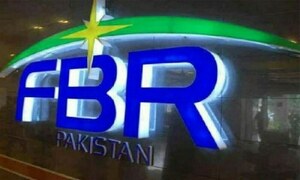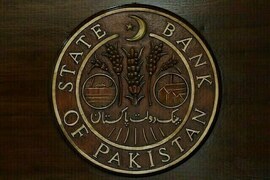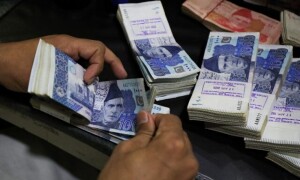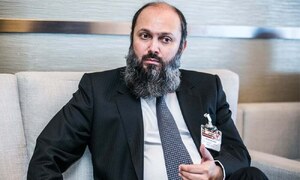 PARIS: Jacques Chirac becomes the first former French president to go before a judge when his month-long trial for corruption during his time as mayor of Paris in the 1990s begins on Monday. Chirac, 78 and one of France's most popular political figures despite the charges, stands accused of using public money to pay people working for his party while he was mayor of Paris, a post he held from 1977 to 1995.
PARIS: Jacques Chirac becomes the first former French president to go before a judge when his month-long trial for corruption during his time as mayor of Paris in the 1990s begins on Monday. Chirac, 78 and one of France's most popular political figures despite the charges, stands accused of using public money to pay people working for his party while he was mayor of Paris, a post he held from 1977 to 1995.
He enjoyed immunity from prosecution as president from 1995 to 2007, but the case, which has already seen current Foreign Minister Alain Juppe convicted, has finally caught up with the former head of state.
The case could promptly grind to a halt, however, if a lawyer working for one of Chirac's co-defendants succeeds in getting a procedural matter referred upwards to France's constitutional court.
He has been linked to a series of corruption scandals but never convicted. If found guilty, Chirac faces up to 10 years in jail and a fine of 150,000 euros ($210,000) on charges including embezzlement and breach of trust.
In the opening hearing due to start at 1:30 pm (1330 GMT) Monday, presiding judge Dominique Pauthe is due to deal with procedural issues.
Chirac's first appearance is scheduled for Tuesday. When he is due to answer the judge's questions, the court said.
The hearings in Paris are the result of the merging of two separate cases one begun by magistrates in the Paris suburb of Nanterre in 1995, and another in the capital itself dating to 1998.
The case involves seven alleged ghost jobs for which Chirac is charged with conflict of interest and 21 other jobs for which he is accused of embezzlement and abuse of trust.
Nine other people are going on trial alongside Chirac, accused either of having ghost jobs or benefiting from those of town hall employees.
Chirac denies that the people employed in the jobs were used to prepare for the 1995 presidential election, which he went on to win, insisting they were all legitimate posts in the service of Paris.
Jean-Yves La Borgne, a lawyer working for one of Chirac's former chiefs of staff, said he will argue that under the constitution the accusations in the former case can no longer be heard since they date back too far in time.
So even before Chirac's first scheduled appearance on Tuesday, the judge may agree to submit the question for constitutional ruling. This process would delay the trial for months.
Paris city hall last year dropped its civil charges against Chirac in return for a payment of more than 2.2 million euros, from him and the right-wing UMP party.
Chirac paid more than half a million euros of this from his own pocket but did not acknowledge any wrongdoing.
Chirac's lawyers are expected on Monday to raise procedural points relating to these. State prosecutors meanwhile have called for the case to be dismissed, making a conviction highly unlikely.
There have been reports that Chirac's health has deteriorated perhaps even to the point where he would be able to avoid trial. In January his wife Bernadette denied media reports that he was suffering from Alzheimer's.
Chirac declined to comment on the trial when questioned on Europe 1 radio on Sunday, saying only that he was "as well as can be."
The court is expected to be crowded, with about 100 media accredited.






















Comments
Comments are closed.